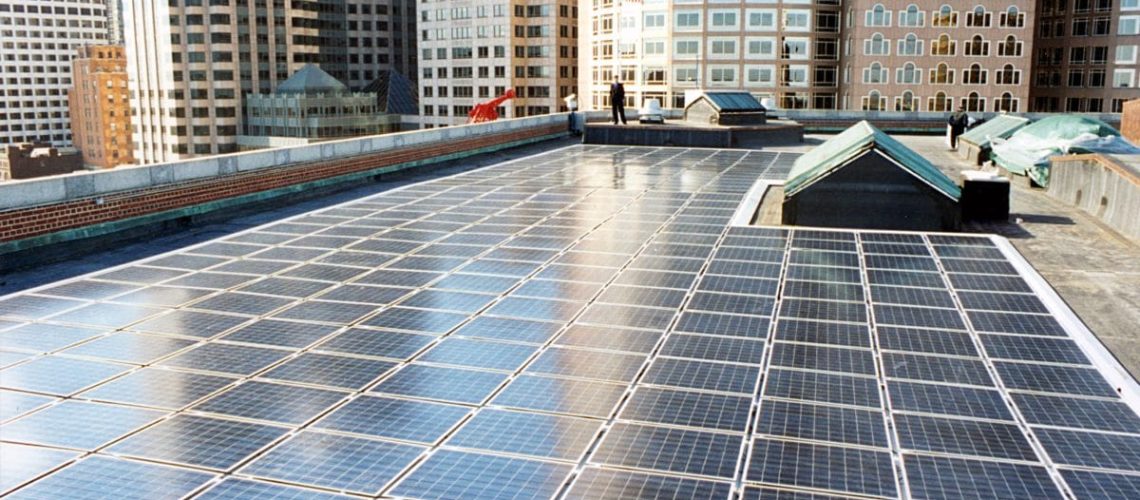Michelle Wu signed an executive order banning the use of fossil fuels in new construction and renovated buildings.
As part of the city’s push to become carbon emissions neutral by 2050, Boston mayor Michelle Wu signed an executive order to ban the use of fossil fuels in new and renovated buildings.
The order calls for a ban of energy sources like heating oil and natural gas, modernizing public buildings in one of the nation’s oldest cities. With over 16 million square feet of property owned by the City of Boston, the order makes strides toward the city’s goals of decarbonization and electrification.
Buildings account for more than 70% of Boston’s total carbon emissions, with municipal buildings representing a 2.3% share. The city has already set aside over $130 million in its capital plan to revitalize older structures and add decarbonization and efficiency measures.
The fossil fuel ban applies to existing city buildings that undergo extensive renovations that cover over 75% of the building’s square footage. It also applies to renovations to HVAC systems, hot water or cooking equipment.
While public buildings are a small portion of the overall building footprint in Boston, private-sector market participants said the progress towards 100% electrification in public buildings will serve as a case study for decarbonization.
“The lab sector is particularly difficult to get to 100% electric,” said Tamara Small, chief executive officer, NAIOP Massachusetts. “So seeing how the city — with perhaps some additional public sector resources — could get there, will be helpful for us.”
Boston also opted in to a new state-specialized code that requires new construction to be wired for future all-electric use. These regulations take effect Jan 1, 2024.
“I think it will cost the city more money, but in the long run, I think it’s a good investment,” said Larry DiCara, a former Boston city councilor and real estate attorney.
While electrification may incur new costs for Boston buildings, it paves the way for operating on 100% emissions-free power. As the nation transitions away from fossil fuels toward low-cost, reliable sources like solar and wind, cost advantages will follow.
Today, solar energy remains the lowest-cost option for adding new generation to the electric grid.



